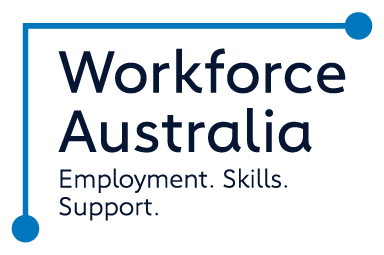Greetings! I'm Con J Kittos, an entrepreneur in my 60s who built a successful business, Asuria People Services. After years in high-paying jobs, my entrepreneurial spirit led me to create my own path. Today, I'm keen to share the wisdom I've gained to inspire aspiring entrepreneurs.
In our previous discussion, we compared self-employment and traditional employment. Now, we'll tackle another key entrepreneurial challenge: funding. As budding entrepreneurs, securing financial resources to realise your dreams can be daunting. Many struggle to access traditional finance from banks or credit unions. This is especially problematic for those in rural areas or with low incomes or poor credit scores. Being unable to secure loans can hinder financial management and even lead to poverty.
Here are some suggestions to help you secure funding for your business idea.
Applying for grants
Applying for new business grants is a great way to get the funds you need to get your business off the ground, though before heading down that road, be sure to find out if your business might be eligible for financial support through the Self-Employment Assistance program, delivered by Asuria, here.
Grants can provide vital capital to help businesses launch, expand, or restructure. Each state has its own small business grants to support start-ups and scale-ups. The following are a few examples.
- New South Wales: The MVP Grant offers up to $25,000 to help early-stage startups develop a minimum viable product. Local Innovation Network (LIN) is a $2.1 million commitment by the NSW Government to develop regional entrepreneurship and support startups and SMEs in seven emerging regional locations.
- Victoria: Future Industries supports job creation in high-growth industries including medical, new energies, food and fibre and construction. The Small Business Digital Adaptation Program allows businesses to apply for a $1200 rebate upon purchase of a digital product to build digital capability.
- Queensland: For training and accelerator programs explore Startup Onramp Regional Queensland Program. While the Business Basics Grants Program provides support to help increase your core skills and adopt best practices.
- Australian Capital Territory: Innovation Connect Grants (ICON) supports entrepreneurs to develop and grow ideas. Grants usually range between $10,000 and $30,000.
- South Australia: The SA Venture Capital Fund (SAVCF) provides a portion of the initial startup funding, with the rest needing to be matched by other funds or investors.
- Western Australia: The New Industries Fund is an initiative to support and accelerate new and emerging businesses. There are several programs you can explore. Keep an eye out for the City of Perth grants as they become available.
- Tasmania: Business Growth Loan Scheme provides concessional loan funding to support businesses to recover and adapt and allow new projects that contribute to employment in Tasmania.
- Northern Territory: Business Growth Program helps businesses, not-for-profits, and Aboriginal enterprises receive support from grants and funding outlets.
Finding investors or taking on a partner
When I wanted to establish Asuria, I didn’t have enough money to do it alone, even after borrowing everything I could from the bank and loans from family; it was a good start, but I needed much more than family or the bank could provide so I went about finding an investor who could share in the ownership of the business in exchange for much-needed capital.
Finding the right partner can offer access to additional capital and more. A partner with the necessary financial resources and business expertise can provide otherwise inaccessible funds. They can also offer valuable insights to help achieve business goals. It's crucial when partnering to ensure clear terms, agreement on decision-making and profit distribution, and clarity on each partner's roles and responsibilities. Though beneficial for business growth, partnerships are long-term commitments and shouldn't be taken lightly.
Finding investors or a partner is challenging, requiring extensive research, networking, and effort. Potential investors must be identified, approached, and convinced of the venture's potential. A well-structured business plan detailing the venture's goals, strategies and a comprehensive financial plan with realistic projections is essential.
Send me an Angel
Angel investors fund startups and small businesses in exchange for equity or convertible debt. They typically focus on early-stage, high-growth potential companies, expecting a return on investment within 3 to 5 years. Investments usually range from $25,000 to $500,000. Angel investors come from diverse backgrounds, including entrepreneurs, venture capitalists, executives, and other wealthy individuals. They often provide more than capital, offering mentorship, industry connections, and advice. They frequently form networks or syndicates to pool resources and knowledge. This is standard practice in Australia.
Press the Accelerator
Startup accelerators and incubators offer a range of benefits to entrepreneurs looking for short-term growth, such as seed capital, training programs, offices or coworking spaces, cohorts and pitch/demo days. These resources are invaluable for businesses, as they provide the necessary support to help them get off the ground. Through networking with other innovators and engaging with potential investors, entrepreneurs can gain the confidence and resources to make their ideas come to life.
Here are some links to the best start-up accelerators in Australia.
- H2 Ventures: Founded in 2013, H2 Ventures is a Venture Capital fund that operates the H2 Accelerator, Australia’s only dedicated fintech, data, and A.I. accelerator.
- Founder Institute: With over 200 cities and 5,000+ startups funded to date, it’s undeniably one of the most critical startup accelerators worldwide.
- Innovyz: Australia's largest and broadest industry commercialisation group assisting product, service and software organisation to commercialise their product offering. As a mentor for the ANZ Innovyz START accelerator program, I'm proud to share that we've helped 33 companies successfully bring their products to market within the first two years of the program.
Asking family and friends
Asking family and friends for financial support can be an excellent way for small businesses to get the funds they need to get off the ground and grow. From loans to investments, family and friends are often willing to help out in order to see a loved one’s business succeed. In my case seeking funding from family to establish Asura was one of two steps I took, and doing so was an important factor in my success.
Consider Line of Credit and microloans
Lines of credit are a great way for small businesses to get access to funds when needed. They offer flexibility and convenience and can be used for a variety of purposes. Interest rates on lines of credit vary depending on the lender, but typically they are lower than those of other types of loans. In addition, many lenders offer lines of credit with no collateral requirement, making them accessible to businesses with limited resources.
Credit cards can be used to finance short-term expenses or to bridge the gap between income and expenses
Credit cards are a useful tool for financing short-term expenses or bridging the gap between income and expenses. But be careful; the interest rates are excessive, and it’s easy to get into trouble by overextending yourself.
Utilise Crowdfunding Platforms or Peer-to-Peer Lending Platforms
Crowdfunding platforms, such as Kickstarter and GoFundMe, are an invaluable resource for small businesses looking to raise capital. By creating campaigns on these platforms, entrepreneurs can gain access to a global network of donors who can support their business ventures.
Peer-to-peer lending platforms, such as Prosper and Lending Club, are online services that facilitate direct lending between individuals. These platforms allow borrowers to obtain loans at lower interest rates than those offered by traditional banks. Lenders can also earn higher returns on their investments than they would through traditional banks.
Both crowdfunding and peer-to-peer lending offer a safe and secure way for individuals to borrow and lend money without having to deal with traditional banks. However, alternative lending is much more expensive than traditional bank loans.
In conclusion, navigating business funding can be daunting for entrepreneurs, but it's possible to find success. This article explored various options, including grants, angel investors, partnerships, and alternative financing. Government grants offer crucial capital, while angel investors provide funds and expertise. Startup accelerators provide resources for growth, and partnering with small businesses can offer additional capital and insights. Family and friends can be supportive, but clear terms are essential. Alternative methods like lines of credit and crowdfunding have pros and cons. With research, perseverance, and a well-structured plan, entrepreneurs can secure the funding they need to turn their dreams into successful businesses, while not overlooking vital, free support provided by the Federal Government’s Self-Employment Assistance program, delivered by Asuria.







